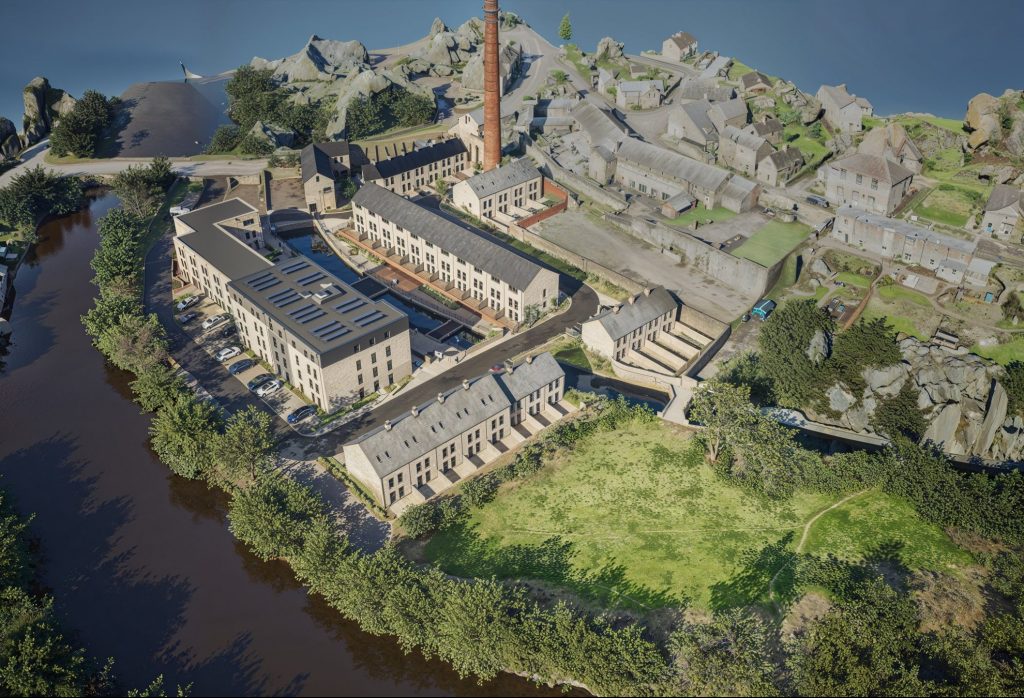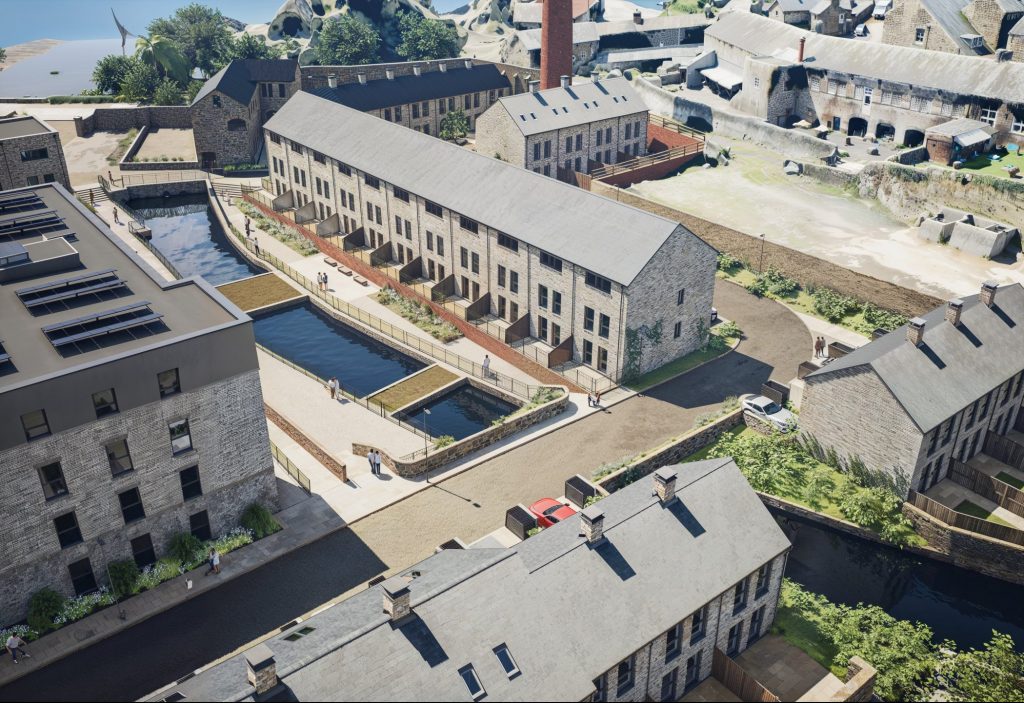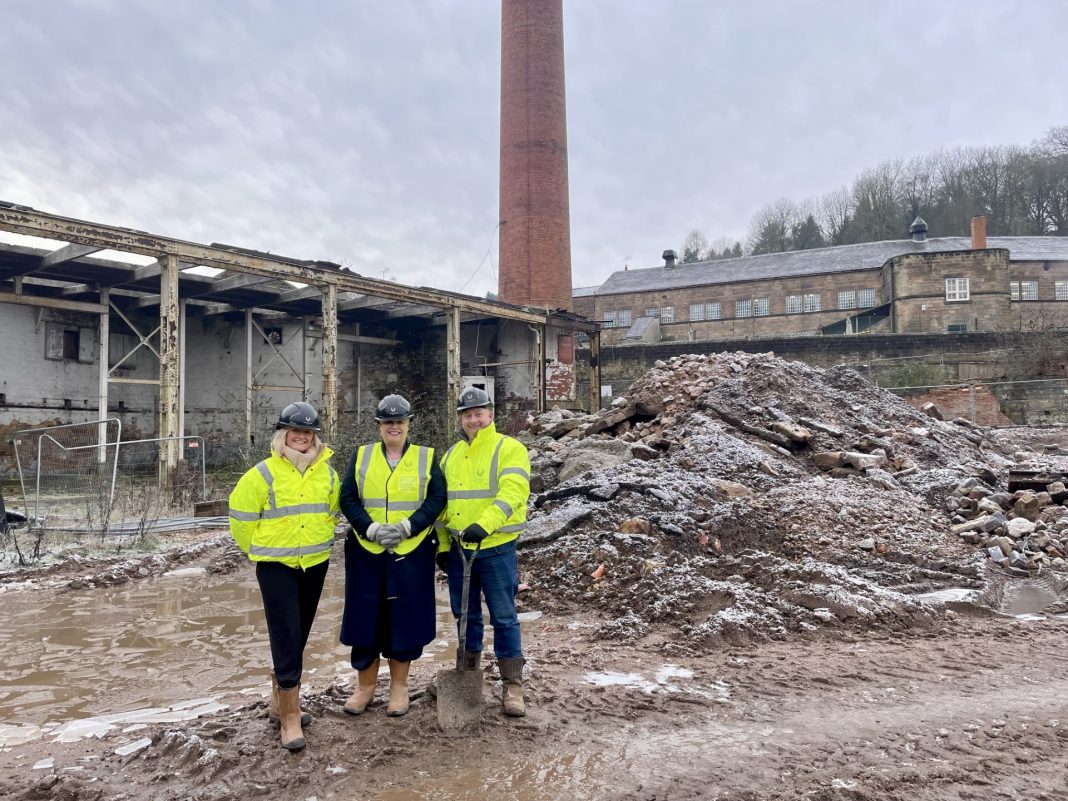Wavensmere Homes has commenced construction to redevelop Milford Mills, which overlooks the River Derwent, located between Belper and Duffield in north Derbyshire.
The £22m development will comprise 69 new homes to be delivered on the historic brownfield site, which is within the Derwent Valley Mills UNESCO World Heritage Site.
Accessed off Derby Road (A6) in the centre of Milford village, the redevelopment of former commercial premises will feature 42 two- and three-bedroom houses and 27 one- and two-bedroom apartments, within a four-storey building overlooking the River Derwent and Mill Lade.
Ground and site enabling works across the 4.7-acre site are underway, with the first phase of construction to incorporate 10, two- and three-bedroom houses, which will be ready to move into during autumn 2026, constructed from locally quarried stone and natural slate.
A second phase of 15 three-bedroom houses will be completed before the end of 2026. The handover of the waterside apartment building and the full redevelopment, restoration and construction programme is scheduled to conclude by mid-2027.

James Dickens, Managing Director of Wavensmere Homes, said: “Locals have been waiting for many years to see this unique and prominent site – in the centre of one of North Derbyshire’s most well-regarded villages – get the green light for redevelopment.
“Milford’s beautiful rural setting, community spirit, and easy access to Derby and the Peak District, makes it very desirable. But the chronic shortage of homes has led to people moving out of the area to find suitable housing.
“Milford Mills’ 69 energy-efficient houses and apartments will cater to first time buyers, families and downsizers. We are proud that local craftsmanship and our fine attention to detail will create a highly sustainable development that will add to the village’s vibrancy and appeal. With these natural stone homes becoming available to reserve, we are urging interested parties to register on our website.”
The houses will be installed with air source heat pumps, while the apartments will have electric heating, with solar PV panels fitted to the roof of the building to generate renewable energy. The site will be further complemented by 1.5-acres of public open space and the recent restoration of the Grade II listed Dye House by Chevin Homes to form a 4,500 sq ft commercial premises.
The former 18th Century cotton mill housed some of the world’s first mechanised industrial spinning factories. The historic features that are being painstakingly restored include the Mill Lade that now feeds a hydroelectric power plant downstream, along with the repair of all original stone boundary walls.




